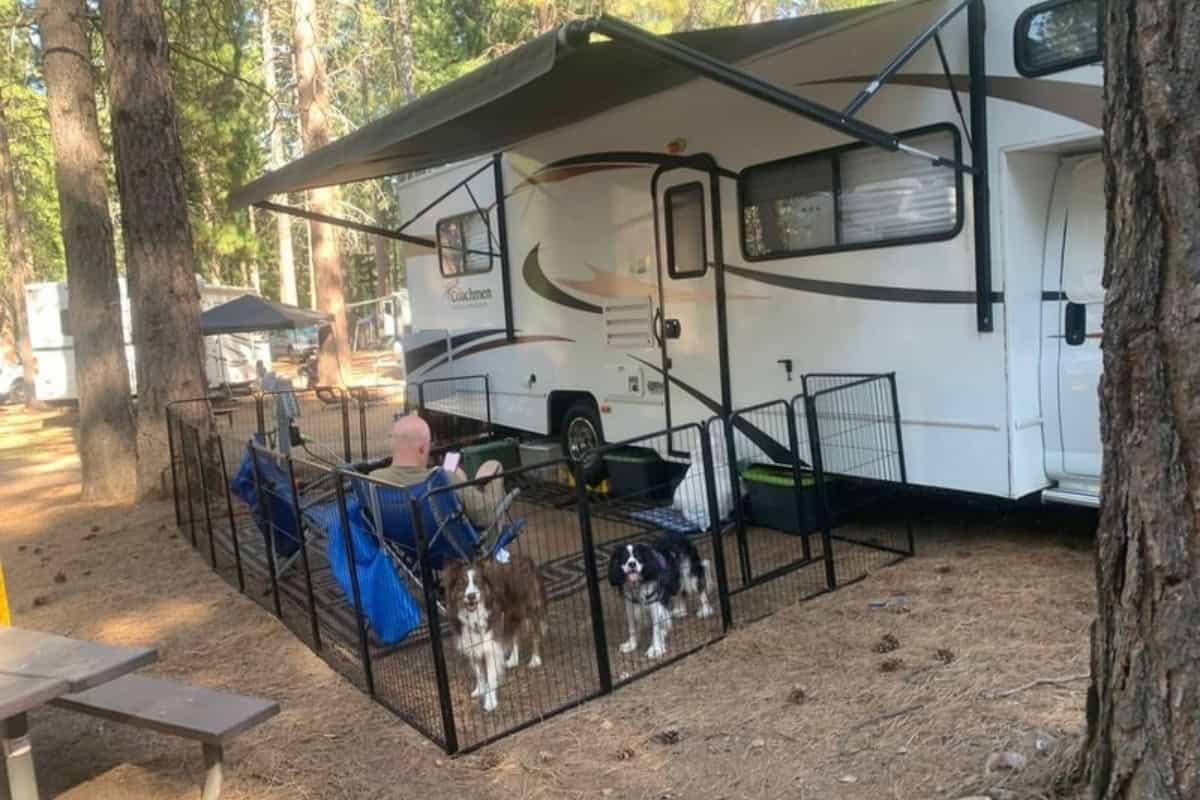Navigating outdoor allergies can be a challenge, especially for those of us who love camping and spending time in the great outdoors. While indoor allergies have their own set of solutions, like vacuuming and dusting, outdoor allergens present a unique set of challenges.
Yet, the call of the open road and the beauty of nature are too compelling to ignore, even for those among us who suffer from seasonal allergies to pollen, mold, grass, and tree pollen.
Managing outdoor allergies effectively can make a significant difference in how you experience RV camping, especially during peak allergy seasons. Thankfully, there are strategies we can employ to mitigate these allergy symptoms and enjoy outdoor adventures.
Monitor Pollen Counts and Air Quality
Before planning your camping trip, consider the seasonal allergies that affect you the most. Utilize forecasts to avoid high allergen times, like late spring through August or later for ragweed or the periods when grass and tree pollen are most prevalent.
Websites and apps can provide daily pollen counts and air quality indexes. On days when the pollen count is forecasted to be high, it may be wise to stay indoors to avoid triggers that can lead to symptoms like sneezing, runny nose, and congestion.
Use Protective Measures To Alleviate Outdoor Allergies
When avoidance isn’t possible, wearing a pollen mask can help filter out allergens, preventing them from causing sneezing, coughing, and a runny nose. Masks rated for pollen, such as N95 respirators, are most effective, but even cloth masks can provide a barrier.
Additionally, wearing protective clothing and sunglasses can shield your skin and eyes from allergens. Remember, allergens like grass pollen and tree pollen can stick to fabric, so changing and washing clothes after outdoor exposure is crucial.
Shower and Do Laundry Regularly
Showering after spending time outdoors can remove allergens from your skin and hair, reducing symptoms like allergic rhinitis and watery eyes. Washing your face and hands frequently throughout the day can also offer immediate relief from exposure.
For laundry, using hot water and regular detergent helps eliminate allergens from clothing. Avoid outdoor air-drying during high allergy seasons, as this can allow pollen and mold spores to settle on clean laundry, exacerbating allergy symptoms.
Use Air Purifiers To Combat Outdoor Allergies
For RV campers or those spending time indoors, air purifiers with HEPA filters can significantly reduce indoor allergens, including pet dander, dust mites, and pollen. Devices like the PureZone Mini Portable Air Purifier are designed for small spaces, making them ideal for RVs.
Keeping windows closed and using air conditioning with a clean filter can also help maintain a low-allergen environment inside.
Opt for Over-The-Counter Allergy Medications
Over-the-counter antihistamines, decongestants, and nasal sprays can provide symptom relief for those affected by pollen, mold, or other outdoor allergens. Allergy medications work by reducing the body’s immune system response to allergens, helping to control symptoms like sneezing, congestion, and itchy, watery eyes.
Consult Healthcare Providers for Personalized Advice
For personalized treatment plans, including immunotherapy or prescription medications, consulting an allergist is advisable. Allergy tests, such as skin prick testing or blood tests, can identify specific allergens that trigger your symptoms, allowing for targeted treatment plans.
The American Academy of Allergy, Asthma & Immunology recommends that individuals with persistent or severe allergy symptoms seek professional advice for the most effective management strategies.
Wrapping Up Outdoor Allergies
Outdoor allergies shouldn’t prevent anyone from enjoying camping and the beauty of nature. By implementing these detailed strategies and staying informed about your specific allergy triggers, you can enjoy more time outdoors with fewer symptoms. We encourage you to share your own tips, experiences, and what works best for you in managing outdoor allergies.
Whether it’s a tried-and-true cleaning tip, a helpful camping location away from common triggers, or a particular brand of air purifier that works wonders in your RV, your insights can make a world of difference. Share your stories and suggestions in the comments below.
Related Articles:



